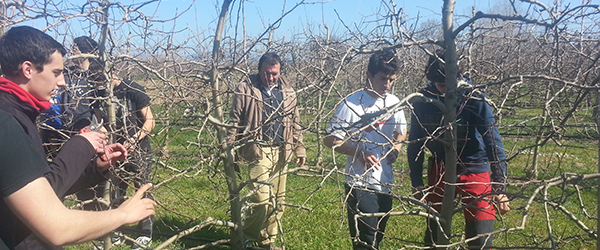
The second year course of mid-level agrarian studies had a day of apple tree and peach tree pruning in the town of Sant Pere Pescador. Fruit-tree head, Mr Josep Font, explained the reasons behind pruning, types of pruning, current markets (fruit commerce), pruning equipment and technics. Afterwards, students working in pairs put into practise what they had learnt.
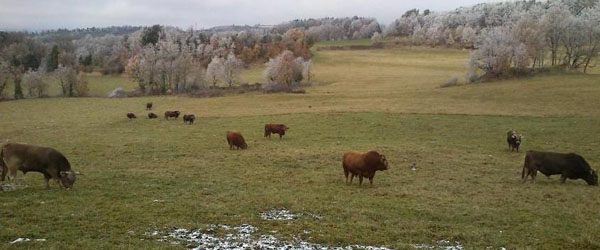
On the 23rd January students from the second year, medium-level pig breeding production course made a study visit at Mas La Torra, a farm which breeds the Bruna dels Pirineus cow species in Olost.
Head of the farm, Mr Josep Altarriba, explained the different aspects of the site's day to day work. He also showed the students where the animals are kept and other facilities, as well as the cows and calves themselves.
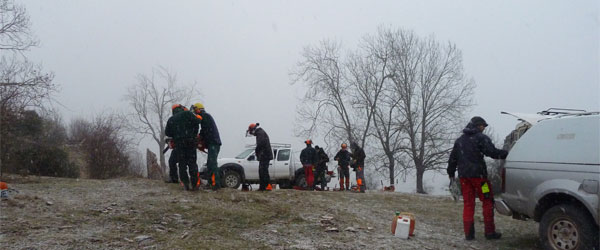
On the 15th of January we went to do work experience with the forestry students in a forest near Ogassa. An agreement had been made with the ´Consorci del Ripollès CEINR`.
+ info: http://ceinr.cat/
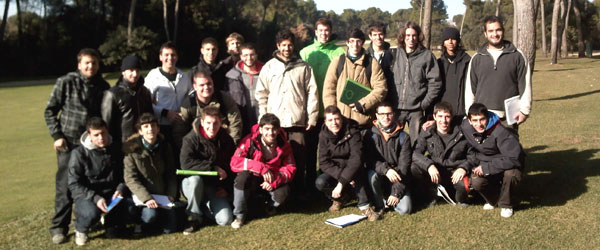
The higher-level students, within the ´watering systems` subject area, have worked on watering system management and materials as part of the Study Plan process. Among the various activities carried out was a technical visit to two golf courses: Real Club de Golf el Prat and Camp de Golf Costa Brava. During these visits students were very well looked after by watering technicians and greenkeepers: Mr Gonzalo, of Prat and Mr Farré, of the Costa Brava.
+ info: http://www.aegreenkeepers.com
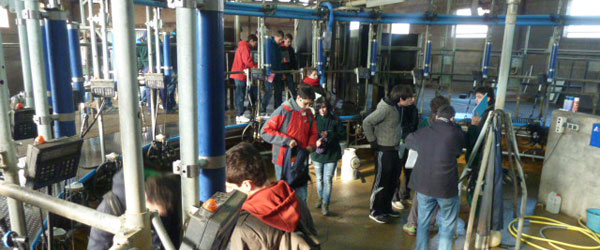
This week we visited Can Puig, a cow farm found in Masies de Voltregà. One of its main characteristics and one of the reasons for the visit is its rotative milking area. Ex-student Pere Font, owner of the farm, explained the workings of the facilities and the food necessary to produce good quality milk in cows.
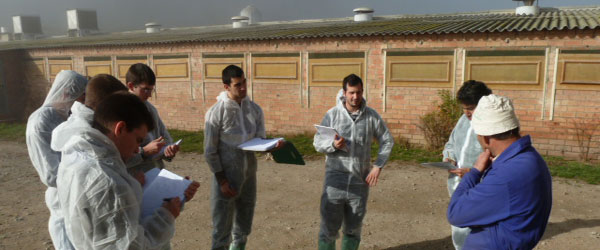
Because this fortnight we prepared the Animal Welfare study plan we paid a visit to Can Corretja. Mr Esteve Prat, one of the firm's owners, gave us a very interesting talk about the workings of the electronic feeding system.
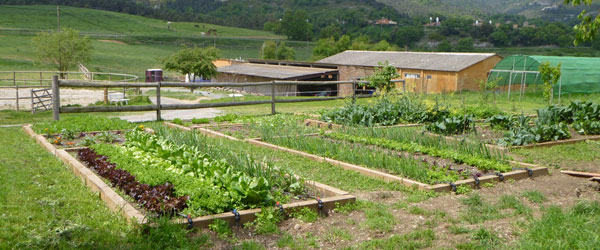
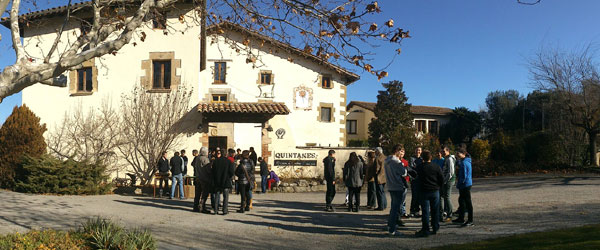
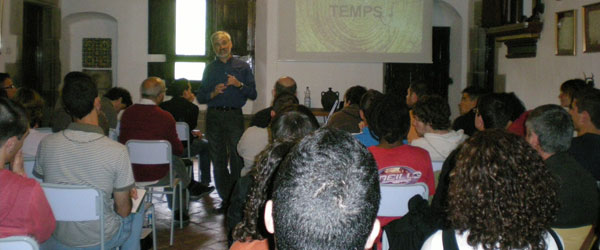
Since 2011 EFA Quintanes has taken part in the Catalan government's annual plan of Technological Transference, organising technical training days aimed at professionals in the gardening, agriculture, livestock and forestry sector. In the photo you can see the well-known tree specialist Josep Selga in one of the conferences at Quintanes.
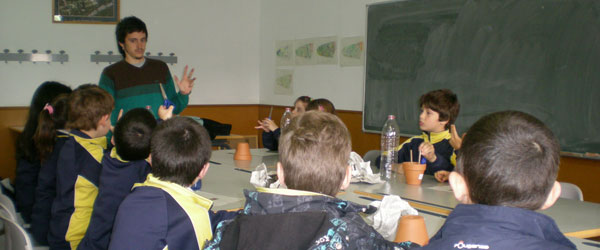
Study visit by the Guillem de Montrodon school in Vic. It was made so that its youngest students could discover the colours of the forests which make up part of Quintanes's land.
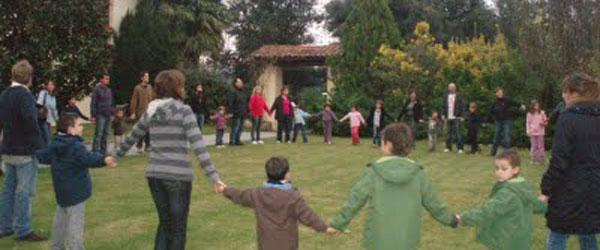
The students from Sagrats Cors school in Sant Hipolit de Voltregà visit Quintanes and build feeding sites for birds. Before the building starts, they do a nature trail through the forest observing the surroundings and listening to the sounds of nature.